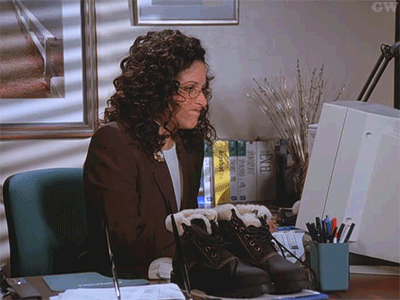Understanding Burnout: What It Is vs. What It Is Not
The feedback on last month’s series on my experience with burnout was appreciated. Hearing some of your stories and current situations really validates why Go Long is my passion project. Please keep sending in your comments as it helps me shape future content.
This month, I’ll be covering a 4-part series on what burnout is and is not. Think about it. So many myths exist around burnout, some of which I covered on #mythmondays on IG. For women over 40, it’s important to understand the differences between stress because your body needs some of that and burnout. Once you can distinguish between stress that is beneficial to you vs. stress that is causing inflammation, you can position yourself to get ahead of things and keep yourself healthy.
What burnout isn’t
It's really easy to mix up feelings like stress or tiredness with burnout, so let's gently unpack what each of these experiences really means:
Ordinary Stress: It’s normal to feel stressed when faced with specific demands, like a tough workout or a big project deadline. Usually, this kind of stress eases off once the situation is over. However, burnout is different. It's about feeling worn out emotionally, physically, and mentally over a long period, without relief.
Depression: This is a deeper issue that might look a bit like burnout because both can make you feel exhausted and disinterested. But depression affects every part of your life and can bring intense sadness and feelings of worthlessness. It's a serious health condition that needs care from medical professionals, which is different from how you might handle burnout.
Fatigue: Everyone gets really tired sometimes, maybe because of a health issue, not sleeping well, or working too long without a break. Fatigue mainly hits your energy levels. Burnout includes feeling negative and ineffective at work, which is about more than just being tired.
Boredom: If your job doesn’t challenge you, you might feel disengaged, but this isn't the same as burnout. Burnout means feeling deeply exhausted and having a negative view of your job, which goes beyond just boredom.
Temporary Overwhelm: Sometimes life just piles up—too much work, too many responsibilities—and it feels overwhelming. This is usually temporary and gets better once things calm down. Burnout creeps up when you're running on empty for a long time without a chance to recharge.
Understanding these differences can help you figure out what you’re really feeling and what steps you might take to feel better. As women in midlife, it’s important for us to address each of these feelings properly to take care of your overall well-being.
Talking about what burnout is
OK, now that we got out of the way what burnout isn’t, let’s get into what burnout is.
Burnout can be defined as feeling stress for an excessive and prolonged period of time. It leads to exhaustion physically, mentally and emotionally. You likely will feel overwhelmed, emotionally drained and unable to meet demands on a regular basis.
On a more practical level, it can reduce your productivity and sap your energy, leaving you feeling resentful, cynical, hopeless and helpless. You feel as though you have nothing left in the tank to give. This is pretty common for women over 40.
The thing about burnout is that the sneakiest aspect of burnout is that you may think you are just experiencing it in one area of your life but it is actually pervasive throughout all aspects of your life. For example, you could be experiencing feelings of burnout at work and what will happen is that the anxiety there will influence other aspects of your life. It’s going to impact your relationships with the people who matter most in your life and it will certainly affect your relationship with yourself. This is especially true for women in midlife.
More practically, here are some feelings commonly associated with burnout:
Decreased Achievement: You are feeling a significant drop in your performance and productivity at work, at home, or in other areas of life. I refer to this as the “Quicksand Effect”. The harder you try to get out of the hole, the more you sink.
Emotional Exhaustion: You might feel drained and unable to cope, with emotional reserves feeling depleted. I call this “running in zone 5 (out of 5) all of the time”. You’re always running the hardest pace that when you need to dig into your reserves once again, you don’t have anything left to give.
Physical Rebellion: When your body is under duress for an extended period of time, inflammation may manifest in different ways, such as headaches, GI issues, overall fatigue, etc. I actually suffered through a minor case of alopecia during that 1st burnout in the mid-90s. Let’s refer to this as your body telling you “to be nicer to it because it doesn’t come with a return policy.”
Loss of Purpose: Burnout can make you feel disillusioned about your job or daily activities, questioning the purpose and value of your work. This is better known as “going through the motions.”
Detachment: A sense of detachment from others and from your environment is common, leading to isolation and loneliness. You may know this as the “I have zero fucks to give” mindset.
Negativity or Cynicism: You may develop a negative outlook on most aspects of life, often feeling let down by others or by circumstances. It may feel like “trust no one” is the only mindset to have at this juncture in your life.
None of those feelings listed above feel anything remotely close to feeling positive about yourself. Why? Because they all create a negative reinforcement cycle that takes so much work to get out of. If you’ve ever experienced burnout, you know how hard it is to turn things around.
You’re feeling as though you’re constantly under siege and that everyone wants a piece of you. ALL. OF. THE. TIME.
Here’s the good news
You can beat burnout in midlife. You can. As a woman over 40, you just have to learn to spot the signs. It’s about recognizing non-obvious activities that you’re involved in that also contribute to burnout. And then it’s learning ways to prevent burnout from happening, whether it is the first time or a recurring theme for you. It may force you to try some approaches outside of your comfort zone, but what do you have to lose?

